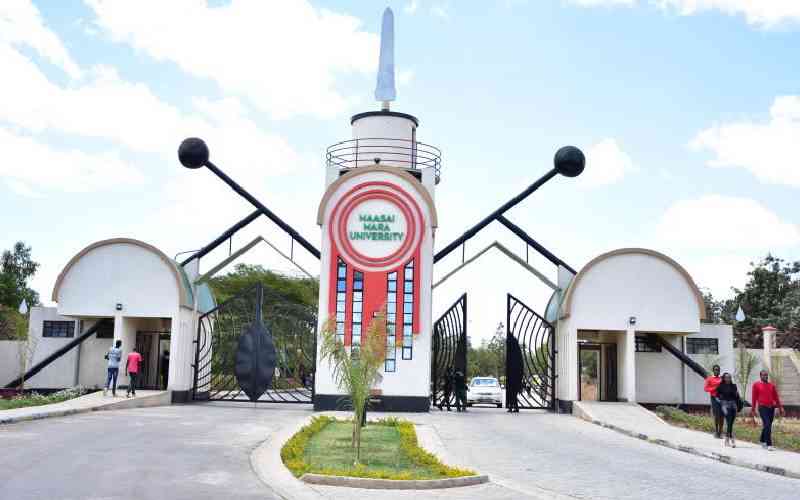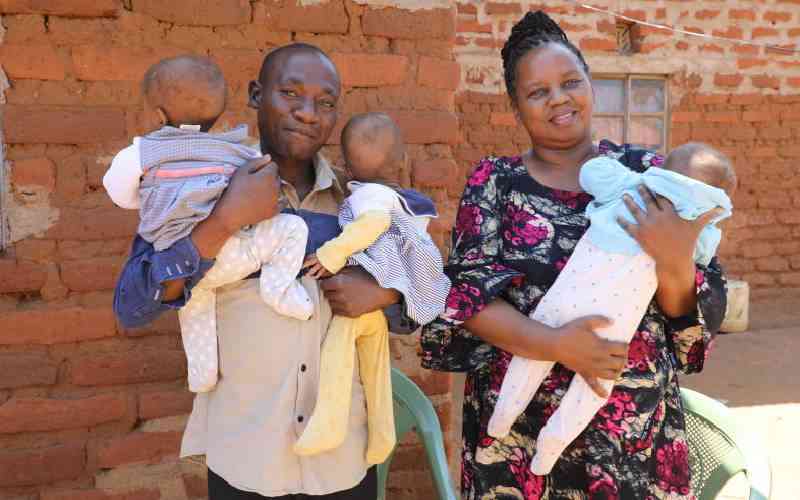Nigeria Adopts Proactive Flood Strategy To Curb Disaster Ahead Of Rainy Season - THISDAYLIVE
•Says we’re exploring alternative energy sources, investing in green technology to transform lives of Nigerians
Vice President Kashim Shettima has disclosed that the Federal Government has moved Nigeria’s flood response from reactive disaster relief to proactive preparedness with the launch of the Anticipatory Action Task Force (AATF) on Floods.
According to him, the initiative aligns with global frameworks such as the Sendai Framework for Disaster Risk Reduction, the Sustainable Development Goals (SDGs), and the Paris Agreement on Climate Change, which emphasises proactive disaster preparedness to mitigate the impact of natural disasters and protect vulnerable communities.
Shettima, who gave the hint on Tuesday during a meeting of the Anticipatory Action Task Force (AATF) on Floods at the State House in Abuja, said the traditional response of mobilising relief after floods strike is no longer sustainable.
“We cannot afford to wait for disaster to strike before taking action. The human and economic toll of floods in Nigeria has become unbearable. We must act now to protect lives and livelihoods by leveraging science, technology, and collaboration,” the Vice President stated.
Members of the Task Force include Nigerian Meteorological Agency (NiMET), the Nigeria Hydrological Services Agency (NiHSA), the National Emergency Management Agency (NEMA), the Federal Ministry of Humanitarian Affairs and Poverty Reduction, alongside state emergency management agencies and international development partners.
According to Shettima, “Prevention is always cheaper than response, and investing in early action today will save billions in future losses. We need to strengthen coordination among agencies, engage local communities, and ensure that preparedness efforts are backed by real-time data.”
Earlier in his remarks, United Nations Resident & Humanitarian Coordinator in Nigeria, Mohamed Fall, explained that the United States’ suspension of humanitarian funding is a wake-up call for us to be more efficient, adding that “transitioning from reactive aid to anticipatory action is critical.
“As we approach the rainy season, we must factor in these developments and ensure that our interventions are timely and effective,” he further noted.
Also, Head of the UN Office for the Coordination of Humanitarian Affairs (OCHA) in Nigeria, Trond Jensen, commended the initiative, explaining that “a critical part of humanitarian response is anticipatory action; not only are we saving lives and reducing vulnerability, we are doing it more efficiently.”
He further commended the government’s leadership, stating that “we are the vanguard of innovation in anticipatory action, and for that, we are grateful to be your partners.”
On her part, Director General of NEMA, Mrs. Zubaida Umar, narrated ongoing efforts to enhance disaster preparedness, including the development of the Hazard Risk Countrywide Analysis, a document aimed at strengthening Nigeria’s resilience against flooding.
“We have established a national coordination forum, bringing together all relevant agencies to ensure readiness. This effort is based on the seasonal climate predictions from NiMET, ensuring that all stakeholders are on high alert,” Umar said.
Also, Special Assistant to the President on Humanitarian Affairs and Development Partners, Inna Binta Audu, explained the progress made by the task force, saying it has already conducted substantial work, with extensive data collection spanning three decades.
“Presently, we have collated relevant data going back 30 years to be used for the Anticipatory Action Framework for Nigeria,” she said.
Also on Tuesday, the Vice President
said President Tinubu has proved his mettle as a courageous and decisive leader through bold and hard policies, including the removal of subsidy on petroleum products, which are gradually transforming Nigeria into one of the largest economies in the world.
He assured, however, that measures being put in place to address the challenges caused by the subsidy removal such as alternative energy sources, and investment in green technology will soon improve the living standard of Nigerians.
Shettima disclosed this when he received a delegation from the Harvard Kennedy School Alumni on a Nigeria-Ghana Trek at the State House, Abuja.
Fielding questions from the Harvard students alongside the Minister of Finance and Coordinating Minister of the Economy, Mr. Wale Edun; Minister of Industry, Trade and Investment, Dr Jumoke Oduwole, and the Special Adviser to the President on Energy, Mrs Olu Verheijen, the Vice President noted that President Tinubu is a good leader who is burning in an unquenchable desire to make Nigeria work.
According to him: “When we assumed the mantle of leadership, the greatest albatross around the neck of the Nigerian government over the past 50 years had been subsidy on petroleum products. We came to a point where we either get rid of the subsidy or the subsidy will get rid of the Nigerian nation.
“So, my boss (President Tinubu) took the bullet, and we knew that if we failed to address the fuel subsidy scam within the first three weeks of the administration, we wouldn’t dare to do that again. In his inaugural address, he took the bullet and announced the removal of the fuel subsidy. And we should know the consequences of unveiling a masquerade; they came after us. We stood our ground and the fuel subsidy was gone.”
On measures being taken so far to ease the hardship caused by subsidy removal, Shettima noted that apart from the social palliatives, the administration is exploring alternative energy sources.
“We are investing massively in green technology – electric buses, electric cars and electric tricycles. Just two weeks ago, the Federal Executive Council approved an expenditure of N158 billion for the procurement of those items for the North East and it will be replicated in other sub-regions of the country,” he said.
The Vice President also said the realignment of the multiple exchange rate was another bold decision by President Tinubu which saved the country from corruption in the foreign exchange market.
“There was no need for you to work. If you had contacts, if you had goodwill in the Central Bank, they could allocate $50 million to you at the official exchange rate, which was around N300-N400 to the dollar, you could make a premium of N300 from the black market without lifting a finger. You can make $30 million within a week or two.
“Our fiscal policy, our tax reforms, are also a very monumental decision by the government of President Bola Ahmed Tinubu. Some of the decisions were very hard decisions. As I said, leadership is not a popularity contest. If you want to be popular, be a nice man, Bola Tinubu may not be a nice man but he is a good leader, and that is what leadership is all about. And we have to make this country work.”
Shettima urged the delegation to ignore the negative narratives about Nigeria and focus on the development strides of the government.
Earlier, while introducing the delegation from the Harvard Kennedy School Alumni, leader of the group, Sheffy Kolade, said she represented a group of four West Africans who had invited 50 of their colleagues and friends on a Nigeria-Ghana Trek so as to move from curiosity on the outfit, colour of the skin, to learning where exactly Nigeria, the most populous black nation in the world, is heading.
She explained that a lot of the Harvard students have taken courses on Africa, African policies, and history, adding that the visit to the Vice President of Nigeria would give them first hand information about the programmes and policies of government and the path of progress the country is going, given the current trends in the West and how Nigeria is responding to the changing relationship dynamics in the world.
According to her, the delegation also wants to know how Nigeria is positioning itself and how it is transitioning from being an emerging economy to a self-sufficient emerging leader.
Also fielding questions bordering on trade policies, subsidy, energy, and security, among others, the Minister of Trade, Industry and Investment, Dr. Oduwole stated that Nigeria is leveraging on the trade policy with WTO, with a particular focus on the African Continental Free Trade Area.
She said Nigeria is pushing for export diversification away from oil and gas, stressing that though much of her earnings come from it, priority now is on technology which attracts about 70% of the GDP.
Also answering questions about government policies and the direction of the economy, the Minister of Finance and Coordinating of the Economy, Mr. Edun said over the last 20 months under the leadership of President Tinubu, Nigeria has made significant progress from where the economy was physically collapsing.
His words, “Today, there is stability in all sectors of the economy due to timely and sound policies, reduction in frivolous spending, removal of petroleum subsidy that was draining the government of up to 5% of the GDP and drawing from the Central Bank far beyond the limits.”
He said the inflation figure recently announced showed that inflation is falling, exchange rate is stable, the price of food items is lower, the prices of energy, petroleum products are lower, while the fiscal deficit shows there is commitment to prudence by the government.
On her part, the Special Adviser to the President on Energy, Mrs Olu Verheijen, thanked the Harvard alumni, noting that their visit was what they envisioned when they formed the group about 20 years ago.
She said on the energy sector, there had been a lot of structural reforms, adding that even though the sector is less than 10% of the GDP, the country relies on it for foreign exchange earnings and fiscal income.
Verheijen noted that one of the policy thrust of the Tinubu administration is that energy becomes an enabler for diversification of the economy and associated income in order to trigger more productivity and income from other sectors of the economy.
“Aside from the removal of subsidy, the idea is that across the value chain, we undertake reforms that allow capital to flow and form around opportunities not only in Nigeria but also look through how we aggregate markets across the region and supply energy not only to Nigeria but across the region as well,” she stated.











